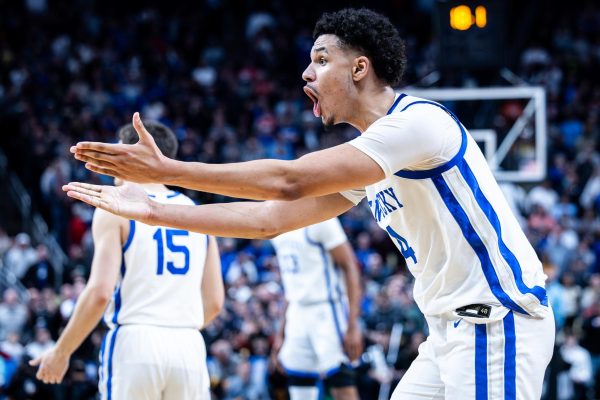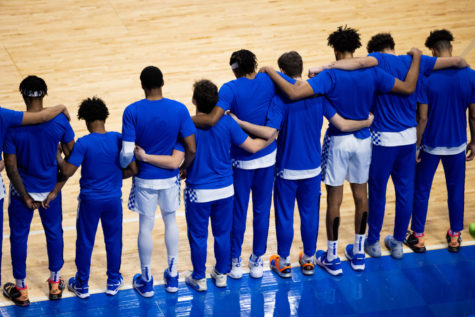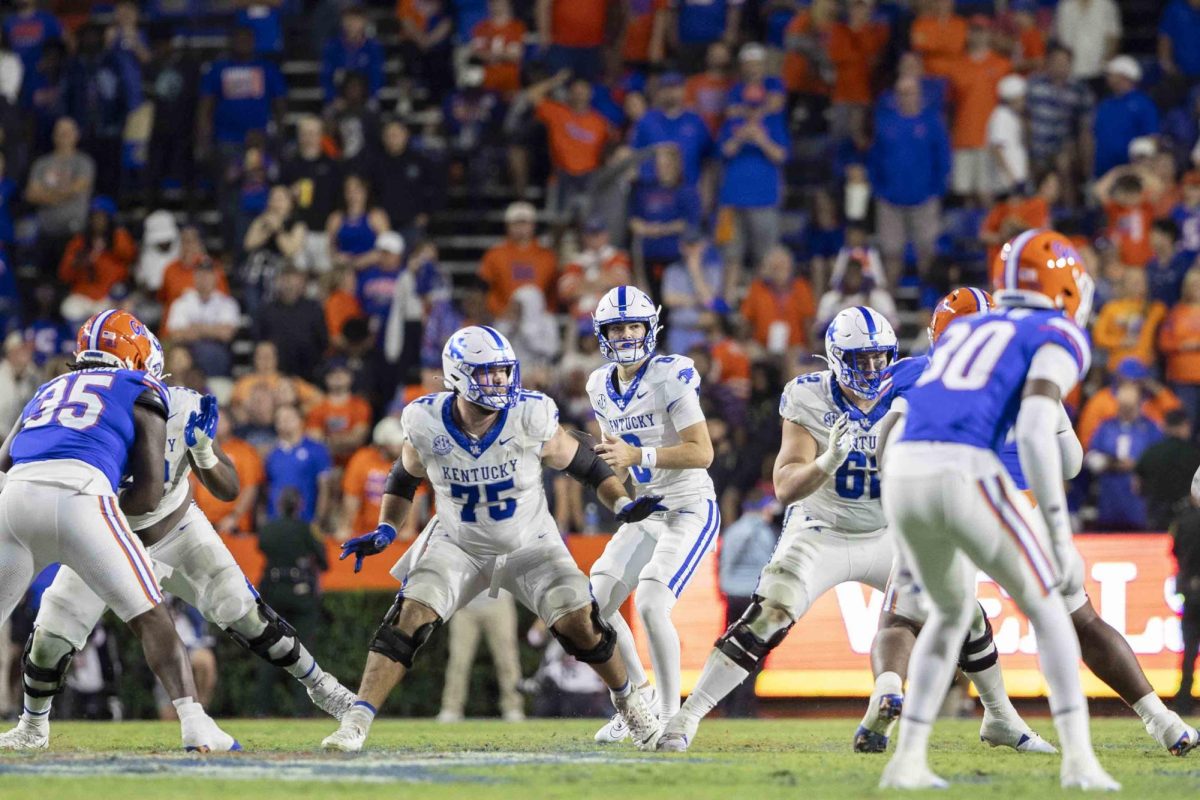The state of Louisiana made headlines on Wednesday when it became the fourth state — behind Ohio, Vermont and Maryland — to ban prop bets on college athletes, which is supposed to take effect in August.
Prop bets, short for proposition bets, are bets that are made on a game that have nothing to do with the final result of the competition. Think Antonio Reeves to hit four 3-pointers or Reed Sheppard to have 20 points.

While some find them fun to make, the byproduct of these betting lines being available to the public has been harmful to the very thing that is most important to college sports: the athletes.
Even looking beyond controversies such as the one surrounding LSU wide receiver Kayshon Boutte allegedly betting on his own props — not dissimilar from the very actions that got Pete Rose permanently banned from professional baseball in the late ‘80s — the consequences have been widely felt in both the pressure put on athletes and their mental health.
It’s well documented in articles from major networks like ESPN that college athletes are facing harassment and abuse from fans daily because they “cost them money.”
Shelby Swanson, the sports editor of The Daily Tar Heel, North Carolina’s student media, wrote a piece ahead of No.1 North Carolina’s NCAA Tournament matchup with Alabama that detailed just a fraction of the problems that come with sports betting including a quote from veteran Armando Bacot that would go viral.
“Going to a school like North Carolina you never get a break,” Bacot said in the piece. “I’ll order DoorDash and the driver will be like ‘Man, you done messed up my parlay!’ And I’m just like, ‘Whatever. I’m sorry.'”
These behaviors, while they definitely come from the minority of sports gamblers, are detrimental to the well-being of the athletes themselves that are being bet on.
Even before sports gambling became as prominent, or even legal in states like Kentucky, mental health was a major talking point in college athletics. Coming out of the pandemic, when the nation as a whole experienced a mental health crisis, five different student athletes took their own lives in a two-month span in 2022.

Looking at the University of Kentucky specifically, multiple athletes had issues with mental health even before the onset of prop betting became mainstream.
Former men’s basketball player Jacob Toppin, who went on to sign a two-way contract with the New York Knicks, detailed feeling like he’d hit “rock bottom” after a difficult stretch of play during the 2022-23 season. He confessed to battling depression and requiring the help of a sports psychologist to continue moving forward.
That situation ultimately worked out for Toppin, but the same couldn’t be said for former basketball walk-on and baseball player Ben Jordan, who took his own life in early 2021.
Now with gambling leading to players being harassed and facing abuse in higher numbers than before, multiple states decided to make the decision to ban prop betting quite literally in the name of player safety.
College athletics is a constantly changing space, that much is extremely apparent. We went from players losing one of the most prestigious football awards in the sports, the Heisman Trophy, because they received benefits from the school to programs practically paying players to transfer to their school in the age of NIL collectives.
We went from four-year players being locked in to the school that recruited them to multiple immediate transfer waivers, turning the offseason into the equivalent of professional sports’ free agency.

The College Football Playoffs are expanding and the college basketball men’s NIT removed automatic bids to small conferences in the name of including bigger brands at the expense of the smaller schools.
It’s all very fluid, but at the end of the day one thing must come first: the well-being of the student athletes who make it all possible.
As a fan of college sports, I personally disagree with a lot of the changes in the way the game is going, but I will always understand them so long as the players themselves benefit and are better equipped for a future either in professional sports or whatever comes next for them.
I was also a major advocate for the legalization of sports gambling, allowing adults to make their own choices with their finances and growing the economies of states who made the move toward legalization.
It’s clear gambling in sports isn’t going anywhere, nor should it in my opinion. But, like anything, there is a safer and smarter way to accomplish the same goal. For the sake of college athletes, mental health and, sure, the integrity of the game, banning prop bets on individual college athletes is the right way to go.
It may suck for those who never once even thought to harass and abuse teenagers because they decided to put their own money on the line knowing there was a chance they lose it, but those who are fans of old adages know, one bad apple can — and often does — spoil the barrel.


































































































































































